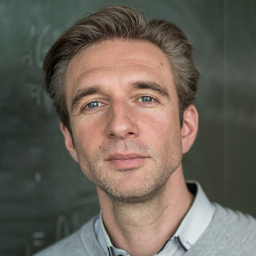Learning Extremal Structures in Combinatorics completed
Extremal Combinatorics focuses on the maximum or minimum sizes of discrete structures with specific properties, posing significant challenges due to their complexity. Traditional computational approaches often fail due to exponential growth in search spaces, but recent AI advancements, especially in Reinforcement Learning, offer new potential. Applying these AI methods could provide insights into combinatorial problems while also enhancing the understanding of AI techniques in complex, sparse reward environments.
🧑🎓 Project Members
🪙 Funding
This project was being funded by the Berlin Mathematics Research Center MATH+ (project ID EF1-12), itself funded by the German Research Foundation (DFG) under Germany's Excellence Strategy (EXC-2046/1, project ID 390685689) from January 2021 to May 2024.

🔬 Project Description
The field of Extremal Combinatorics is concerned with the largest or smallest possible size of discrete structures satisfying some, usually highly structured and regular, properties. The dynamic underlying these problems, despite being well-structured, is incredibly complicated and understanding such complex systems is a major challenge for contemporary Mathematics. Often even a simple probabilistic argument provides a good or even the best known lower bound.
It is natural to try computational approaches in order to gain insights into the nature of these problems. However, in most cases a straight-forward exhaustive search on small examples will very quickly fall into the trap of combinatorial chaos as the search space grows exponentially. Often one small instance can be handled by hand, while the next larger is already out of reach even on modern computers. The right computational approach can however gain insights on problems in Extremal Combinatorics: the most notable example is Razborov’s introduction of Flag Algebras.
We intend to study the applicability of recent incredible advancement in Artificial Intelligence to problems from Extremal Combinatorics. Machine Learning algorithms are solving tasks that were unthinkable up until recently. Many of these tasks, such as recent advancements in the game of Go, can be described as combinatorial problems whose complexity originates from simple rules. Applying these methods to Extremal Combinatorics is a largely untapped field and we are studying to what degree techniques coming from Reinforcement Learning can be used to tame the combinatorial chaos. Results stemming from this research likewise also have the potential to reflect back on the area of Machine Learning: combinatorial problems can provide challenging environments to study the efficacy of different methods and to see how they handle complex environments with a sparse rewards structure.
💬 Talks and posters
Conference and workshop talks
- Jul 2025
- Neural Discovery in Mathematics by Christoph Spiegel
42nd International Conference on Machine Learning (ICML), Vancouver [PDF] - May 2025
- Neural Discovery in Mathematics by Christoph Spiegel
7th DOxML Conference, Kyoto [PDF] - Oct 2024
- Extending the Continuum of Six-Colorings by Christoph Spiegel
41st Kolloquium über Kombinatorik (KolKom), Heidelberg [PDF] - Jul 2024
- Extending the Continuum of Six-Colorings by Christoph Spiegel
13th Discrete Mathematics Days (DMD), Alcalá de Henares [PDF] - May 2024
- On the Maximum Diameter of D-dimensional Simplicial Complexes by Silas Rathke
Berlin-Poznań-Hamburg-Warsaw Seminar, Berlin - Dec 2023
- New Ramsey Multiplicity Bounds and Search Heuristics by Tibor Szabó
45th Australasian Combinatorics Conference (ACC), Perth - Jun 2023
- New Ramsey Multiplicity Bounds and Search Heuristics by Olaf Parczyk
FoCM 2023: Graph Theory and Combinatorics (FoCM), Paris - May 2023
- New Ramsey Multiplicity Bounds and Search Heuristics by Tibor Szabó
Berlin-Poznań-Hamburg-Warsaw Seminar, Hamburg - Mar 2023
- Computer-assisted Proofs in Extremal Combinatorics by Christoph Spiegel
Workshop on Optimization and Machine Learning, Waischenfeld [PDF] - Feb 2023
- Fully Computer-assisted Proofs in Extremal Combinatorics by Christoph Spiegel
37th AAAI Conference on Artificial Intelligence (AAAI), Washington, DC [PDF] - Sep 2022
- Proofs in Extremal Combinatorics Through Optimization by Christoph Spiegel
6th ZIB-IMI-ISM-NUS-RIKEN-MODAL Workshop, Tokyo / Fukuoka [PDF] - Sep 2022
- New Ramsey Multiplicity Bounds and Search Heuristics by Olaf Parczyk
DMV Annual Meeting, Berlin - Aug 2022
- New Ramsey Multiplicity Bounds and Search Heuristics by Olaf Parczyk
20th RS&A Conference, Gniezno - Jul 2022
- New Ramsey Multiplicity Bounds and Search Heuristics by Christoph Spiegel
12th Discrete Mathematics Days (DMD), Santander [PDF] - Jun 2022
- New Ramsey Multiplicity Bounds and Search Heuristics by Olaf Parczyk
Third Southwestern German Workshop on Graph Theory, Heidelberg
Research seminar talks
- May 2025
- Coloring the Plane with Neural Networks by Christoph Spiegel
Advanced Topics in Combinatorics II, Taipei [PDF] - Dec 2024
- Coloring the Plane with Neural Networks by Christoph Spiegel
Research Seminar Combinatorics, Berlin [PDF] - Jun 2024
- On the Maximum Diameter of D-dimensional Simplicial Complexes by Silas Rathke
Mittagsseminar Discrete Mathematics, Berlin - May 2024
- New Ramsey Multiplicity Bounds and Search Heuristics by Tibor Szabó
Research seminar in Discrete Mathematics [video] - Mar 2024
- New Ramsey Multiplicity Bounds and Search Heuristics by Tibor Szabó
Atlanta Lecture Series Combinatorics and Graph Theory XXVIII, Atlanta - Feb 2024
- Maximal Diameter of Simplicial D-complexes by Olaf Parczyk
Seminar on Combinatorics, Games and Optimisation, London - Nov 2023
- New Ramsey Multiplicity Bounds and Search Heuristics by Olaf Parczyk
Seminar on Discrete Mathematics at Adam Mickiewicz University, Poznań - Apr 2022
- New Ramsey Multiplicity Bounds and Search Heuristics by Christoph Spiegel
LIMDA Seminar, Barcelona
Poster presentations
- Jul 2025
- Neural Discovery in Mathematics: Do Machines Dream of Colored Planes? by Konrad Mundinger and Max Zimmer
42nd International Conference on Machine Learning (ICML), Vancouver
📝 Publications and preprints
Preprints
- Glock, S., Parczyk, O., Rathke, S., and Szabó, T. (2026). The Maximum Diameter of d-dimensional Simplicial Complexes.
[arXiv]
[BibTeX]
@misc{2026_StefanOlafparczykSilasrathkeTiborszabo_Maximumdiametersimplicialcomplexes_2602-20890, archiveprefix = {arXiv}, eprint = {2602.20890}, arxiv = {arXiv:2602.20890}, primaryclass = {math.CO}, year = {2026}, author = {Glock, Stefan and Parczyk, Olaf and Rathke, Silas and Szabó, Tibor}, title = {The Maximum Diameter of $d$-dimensional Simplicial Complexes}, date = {2026-02-24} } - Böttcher, J., Frankl, N., Mergoni Cecchelli, D., Skokan, J., and Parczyk, O. (2023). Graphs with Large Minimum Degree and No Small Odd Cycles Are 3-colourable.
[arXiv]
[BibTeX]
@misc{2023_BoettcherEtAl_Graphs3colourable, archiveprefix = {arXiv}, eprint = {2302.01875}, arxiv = {arXiv:2302.01875}, primaryclass = {math.CO}, year = {2023}, author = {Böttcher, Julia and Frankl, Nóra and Mergoni Cecchelli, Domenico and Skokan, Jozef and Parczyk, Olaf}, title = {Graphs with Large Minimum Degree and No Small Odd Cycles Are $3$-colourable}, date = {2023-02-03} }
Conference proceedings
- Mundinger, K., Zimmer, M., Kiem, A., Spiegel, C., and Pokutta, S. (2025). Neural Discovery in Mathematics: Do Machines Dream of Colored Planes? Proceedings of the International Conference on Machine Learning, 267.
[arXiv]
[BibTeX]
@inproceedings{2025_MundingerZimmerKiemSpiegelPokutta_NeuralDiscovery, year = {2025}, booktitle = {Proceedings of the International Conference on Machine Learning}, month = may, volume = {267}, archiveprefix = {arXiv}, eprint = {2501.18527}, arxiv = {arXiv:2501.18527}, primaryclass = {cs.LG}, author = {Mundinger, Konrad and Zimmer, Max and Kiem, Aldo and Spiegel, Christoph and Pokutta, Sebastian}, title = {Neural Discovery in Mathematics: Do Machines Dream of Colored Planes?}, date = {2025-01-30} } - Mundinger, K., Pokutta, S., Spiegel, C., and Zimmer, M. (2024, April 8). Extending the Continuum of Six-Colorings. Proceedings of the Discrete Mathematics Days.
[URL]
[arXiv]
[BibTeX]
@inproceedings{2024_MundingerPokuttaSpiegelZimmer_SixcoloringsExpansion:1, year = {2024}, booktitle = {Proceedings of the Discrete Mathematics Days}, month = may, url = {https://dmd2024.web.uah.es/files/abstracts/paper_27.pdf}, archiveprefix = {arXiv}, eprint = {2404.05509}, arxiv = {arXiv:2404.05509}, primaryclass = {math.CO}, author = {Mundinger, Konrad and Pokutta, Sebastian and Spiegel, Christoph and Zimmer, Max}, title = {Extending the Continuum of Six-Colorings}, date = {2024-04-08} } - Kiem, A., Pokutta, S., and Spiegel, C. (2024). The Four-color Ramsey Multiplicity of Triangles. Proceedings of the Discrete Mathematics Days.
[URL]
[arXiv]
[code]
[BibTeX]
@inproceedings{2023_KiemPokuttaSpiegel_4colorramsey:1, year = {2024}, booktitle = {Proceedings of the Discrete Mathematics Days}, url = {https://dmd2024.web.uah.es/files/abstracts/paper_3.pdf}, archiveprefix = {arXiv}, eprint = {2312.08049}, arxiv = {arXiv:2312.08049}, primaryclass = {math.CO}, author = {Kiem, Aldo and Pokutta, Sebastian and Spiegel, Christoph}, title = {The Four-color Ramsey Multiplicity of Triangles}, code = {https://github.com/FordUniver/kps_trianglemult} } - Rué, J. J., and Spiegel, C. (2023, April 1). The Rado Multiplicity Problem in Vector Spaces Over Finite Fields. Proceedings of the European Conference on Combinatorics, Graph Theory and Applications.
DOI: 10.5817/CZ.MUNI.EUROCOMB23-108
[URL]
[arXiv]
[code]
[BibTeX]
@inproceedings{2023_RueSpiegel_Radomultiplicity:1, year = {2023}, booktitle = {Proceedings of the European Conference on Combinatorics, Graph Theory and Applications}, doi = {10.5817/CZ.MUNI.EUROCOMB23-108}, url = {https://journals.muni.cz/eurocomb/article/view/35642}, archiveprefix = {arXiv}, eprint = {2304.00400}, arxiv = {arXiv:2304.00400}, primaryclass = {math.CO}, author = {Rué, Juan José and Spiegel, Christoph}, title = {The Rado Multiplicity Problem in Vector Spaces Over Finite Fields}, code = {https://github.com/FordUniver/rs_radomult_23}, date = {2023-04-01} } - Parczyk, O., Pokutta, S., Spiegel, C., and Szabó, T. (2022, June 8). Fully Computer-assisted Proofs in Extremal Combinatorics. Proceedings of the AAAI Conference on Artificial Intelligence.
DOI: 10.1609/aaai.v37i10.26470
[URL]
[arXiv]
[code]
[BibTeX]
@inproceedings{2022_ParczykPokuttaSpiegelSzabo_Ramseymultiplicityheuristics:1, year = {2022}, booktitle = {Proceedings of the AAAI Conference on Artificial Intelligence}, month = nov, doi = {10.1609/aaai.v37i10.26470}, url = {https://ojs.aaai.org/index.php/AAAI/article/view/26470}, archiveprefix = {arXiv}, eprint = {2206.04036}, arxiv = {arXiv:2206.04036}, primaryclass = {math.CO}, author = {Parczyk, Olaf and Pokutta, Sebastian and Spiegel, Christoph and Szabó, Tibor}, title = {Fully Computer-assisted Proofs in Extremal Combinatorics}, code = {https://zenodo.org/record/6602512#.YyvFhi8Rr5g}, date = {2022-06-08} } - Parczyk, O., Pokutta, S., Spiegel, C., and Szabó, T. (2022, July 1). New Ramsey Multiplicity Bounds and Search Heuristics. Proceedings of the Discrete Mathematics Days.
[arXiv]
[code]
[BibTeX]
@inproceedings{2022_ParczykPokuttaSpiegelSzabo_Ramseymultiplicityheuristics:2, year = {2022}, date = {2022-07-01}, booktitle = {Proceedings of the Discrete Mathematics Days}, month = jun, archiveprefix = {arXiv}, eprint = {2206.04036}, arxiv = {arXiv:2206.04036}, primaryclass = {math.CO}, author = {Parczyk, Olaf and Pokutta, Sebastian and Spiegel, Christoph and Szabó, Tibor}, title = {New Ramsey Multiplicity Bounds and Search Heuristics}, code = {https://zenodo.org/record/6602512#.YyvFhi8Rr5g} } - Böttcher, J., Sgueglia, A., Skokan, J., and Parczyk, O. (2021). The Square of a Hamilton Cycle in Randomly Perturbed Graphs. Proceedings of the European Conference on Combinatorics, Graph Theory and Applications, 14, 644–650.
DOI: 10.1007/978-3-030-83823-2_103
[arXiv]
[BibTeX]
@inproceedings{2024_BoettcherAmedeoJozefParczyk_Hamiltoncycleperturbation:1, year = {2021}, booktitle = {Proceedings of the European Conference on Combinatorics, Graph Theory and Applications}, volume = {14}, pages = {644--650}, doi = {10.1007/978-3-030-83823-2_103}, archiveprefix = {arXiv}, eprint = {2202.05215}, arxiv = {arXiv:2202.05215}, primaryclass = {math.CO}, author = {Böttcher, Julia and Sgueglia, Amédeo and Skokan, Jozef and Parczyk, Olaf}, title = {The Square of a Hamilton Cycle in Randomly Perturbed Graphs} }
Full articles
- Espuny Díaz, A., Gupta, P., Mergoni Cecchelli, D., Parczyk, O., and Sgueglia, A. (2026). Dirac’s Theorem for Graphs of Bounded Bandwidth. Electronic Journal of Combinatorics, 33(1).
DOI: 10.37236/13474
[arXiv]
[BibTeX]
@article{2024_AlbertoEtAl_Diractheorembandwidth, year = {2026}, journal = {Electronic Journal of Combinatorics}, volume = {33}, number = {1}, doi = {10.37236/13474}, archiveprefix = {arXiv}, eprint = {2407.05889}, arxiv = {arXiv:2407.05889}, primaryclass = {math.CO}, author = {Espuny Díaz, Alberto and Gupta, Pranshu and Mergoni Cecchelli, Domenico and Parczyk, Olaf and Sgueglia, Amédeo}, title = {Dirac's Theorem for Graphs of Bounded Bandwidth} } - Illingworth, F., Lang, R., Müyesser, A., Parczyk, O., and Sgueglia, A. (2025-08). Spanning Spheres in Dirac Hypergraphs. Combinatorica, 45(4).
DOI: 10.1007/s00493-025-00169-9
[arXiv]
[BibTeX]
@article{2024_FreddieEtAl_Spanningspheresdirac, year = {2025-08}, journal = {Combinatorica}, volume = {45}, number = {4}, doi = {10.1007/s00493-025-00169-9}, archiveprefix = {arXiv}, eprint = {2407.06275}, arxiv = {arXiv:2407.06275}, primaryclass = {math.CO}, author = {Illingworth, Freddie and Lang, Richard and Müyesser, Alp and Parczyk, Olaf and Sgueglia, Amédeo}, title = {Spanning Spheres in Dirac Hypergraphs} } - Mattos, L., Mergoni Cecchelli, D., and Parczyk, O. (2025-06). On Product Schur Triples in the Integers. SIAM Journal on Discrete Mathematics, 39(2), 1082–1095.
DOI: 10.1137/24M1632875
[arXiv]
[BibTeX]
@article{2023_MattosDomenicoParczyk_Productschurtriples, year = {2025-06}, journal = {SIAM Journal on Discrete Mathematics}, volume = {39}, number = {2}, pages = {1082--1095}, doi = {10.1137/24M1632875}, archiveprefix = {arXiv}, eprint = {2311.18796}, arxiv = {arXiv:2311.18796}, primaryclass = {math.CO}, author = {Mattos, Letícia and Mergoni Cecchelli, Domenico and Parczyk, Olaf}, title = {On Product Schur Triples in the Integers} } - Kiem, A., Pokutta, S., and Spiegel, C. (2025). The Four-color Ramsey Multiplicity of Triangles. Journal of Combinatorial Theory, Series B.
[arXiv]
[code]
[BibTeX]
@article{2023_KiemPokuttaSpiegel_4colorramsey, year = {2025}, journal = {Journal of Combinatorial Theory, Series B}, archiveprefix = {arXiv}, eprint = {2312.08049}, arxiv = {arXiv:2312.08049}, primaryclass = {math.CO}, author = {Kiem, Aldo and Pokutta, Sebastian and Spiegel, Christoph}, title = {The Four-color Ramsey Multiplicity of Triangles}, code = {https://github.com/FordUniver/kps_trianglemult} } - Rué, J. J., and Spiegel, C. (2025). The Rado Multiplicity Problem in Vector Spaces Over Finite Fields. Finite Fields and Their Applications, 111, 102782–102782.
DOI: 10.1016/j.ffa.2025.102782
[arXiv]
[code]
[BibTeX]
@article{2023_RueSpiegel_Radomultiplicity, year = {2025}, journal = {Finite Fields and Their Applications}, volume = {111}, pages = {102782--102782}, doi = {10.1016/j.ffa.2025.102782}, archiveprefix = {arXiv}, eprint = {2304.00400}, arxiv = {arXiv:2304.00400}, primaryclass = {math.CO}, author = {Rué, Juan José and Spiegel, Christoph}, title = {The Rado Multiplicity Problem in Vector Spaces Over Finite Fields}, code = {https://github.com/FordUniver/rs_radomult_23} } - Parczyk, O., Pokutta, S., Spiegel, C., and Szabó, T. (2024). New Ramsey Multiplicity Bounds and Search Heuristics. Foundations of Computational Mathematics, 25(5), 1777–1814.
DOI: 10.1007/s10208-024-09675-6
[URL]
[arXiv]
[code]
[BibTeX]
@article{2022_ParczykPokuttaSpiegelSzabo_Ramseymultiplicityheuristics, year = {2024}, journal = {Foundations of Computational Mathematics}, date = {2024-08-06}, month = jul, volume = {25}, number = {5}, pages = {1777--1814}, doi = {10.1007/s10208-024-09675-6}, url = {https://links.springernature.com/f/a/pBlOvGGW_XtJVRB0Ek0UTQ~~/AABE5gA~/RgRor2QwP0SiaHR0cHM6Ly9saW5rLnNwcmluZ2VyLmNvbS8xMC4xMDA3L3MxMDIwOC0wMjQtMDk2NzUtNj91dG1fc291cmNlPXJjdF9jb25ncmF0ZW1haWx0JnV0bV9tZWRpdW09ZW1haWwmdXRtX2NhbXBhaWduPW9hXzIwMjQwODI2JnV0bV9jb250ZW50PTEwLjEwMDcvczEwMjA4LTAyNC0wOTY3NS02VwNzcGNCCmbHMN_MZj4XSYBSDnBva3V0dGFAemliLmRlWAQAAAcs}, archiveprefix = {arXiv}, eprint = {2206.04036}, arxiv = {arXiv:2206.04036}, primaryclass = {math.CO}, author = {Parczyk, Olaf and Pokutta, Sebastian and Spiegel, Christoph and Szabó, Tibor}, title = {New Ramsey Multiplicity Bounds and Search Heuristics}, code = {https://zenodo.org/record/6602512#.YyvFhi8Rr5g} } - Mundinger, K., Pokutta, S., Spiegel, C., and Zimmer, M. (2024). Extending the Continuum of Six-Colorings. Geombinatorics Quarterly, XXXIV(7-2024).
[URL]
[arXiv]
[BibTeX]
@article{2024_MundingerPokuttaSpiegelZimmer_SixcoloringsExpansion, year = {2024}, journal = {Geombinatorics Quarterly}, date = {2024-07-01}, month = may, volume = {XXXIV}, number = {7-2024}, url = {https://geombina.uccs.edu/past-issues/volume-xxxiv}, archiveprefix = {arXiv}, eprint = {2404.05509}, arxiv = {arXiv:2404.05509}, primaryclass = {math.CO}, author = {Mundinger, Konrad and Pokutta, Sebastian and Spiegel, Christoph and Zimmer, Max}, title = {Extending the Continuum of Six-Colorings} } - Böttcher, J., Sgueglia, A., Skokan, J., and Parczyk, O. (2024). The Square of a Hamilton Cycle in Randomly Perturbed Graphs. Random Structures & Algorithms, 65(2), 342–368.
DOI: 10.1002/rsa.21215
[arXiv]
[BibTeX]
@article{2024_BoettcherAmedeoJozefParczyk_Hamiltoncycleperturbation, year = {2024}, journal = {Random Structures & Algorithms}, volume = {65}, number = {2}, pages = {342--368}, doi = {10.1002/rsa.21215}, archiveprefix = {arXiv}, eprint = {2202.05215}, arxiv = {arXiv:2202.05215}, primaryclass = {math.CO}, author = {Böttcher, Julia and Sgueglia, Amédeo and Skokan, Jozef and Parczyk, Olaf}, title = {The Square of a Hamilton Cycle in Randomly Perturbed Graphs} }




